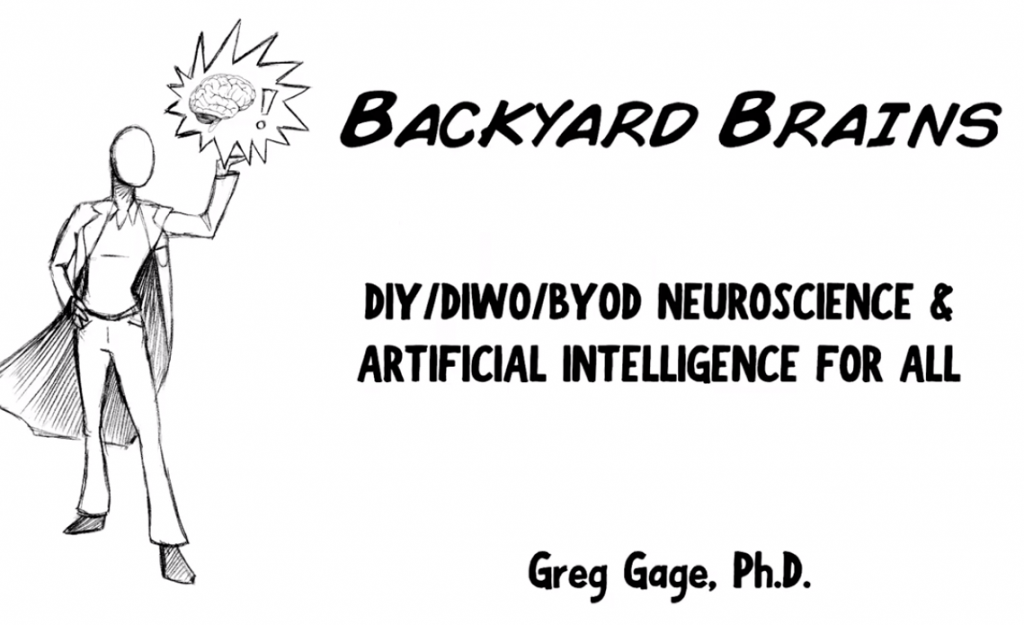
Who says that hands-on approach doesn’t work in virtual space? We’ve said it before and we’ll say it again: science is doable, DIY-able, interactive, and it works online just as efficiently as it does in person!
Back in August 2020, the IBRO-LARC/PEDECIBA* “DIY Neuroscience and AI for all” workshop showed that the COVID-19 pandemic doesn’t have to stand in the way of hands-on neuroscience. BYB founders, Drs. Greg Gage and Tim Marzullo, who also took part in the project, tell us that student attendants from Uruguay, Argentina, Panama, Colombia, Chile, Peru were super engaged and motivated. “I had concerns about a virtual conference at first, but all fears were put to rest once seeing it play out. The discussion, questions and feedback during my lecture was better than in-person,” says Greg.
In his lecture aptly titled “Neuroscience tools for the 99%”, he recounted the humble, bohemian beginnings of Backyard Brains over a decade ago, when he and Tim invented a $100 spike in their dorm room. Building a contraption from scratch and pitching the idea to the scientific community and the public are two different things, so they came up with a satirical narrative about a zombie apocalypse to attract people to their booth at the Society for Neuroscience conference. The rest is history!
In one of his two presentations (which, alas, aren’t available in English), Tim discussed open-source philosophy and ways to make your own lab at home. Hablas Español, anyone? In case you do, here is the video. (If you take notes in English, do send them over!)
Tim also demonstrated the Venus Flytrap experiment featuring our good old friend, the Plant SpikerBox, to show a very unique talent that some plants developed: the ability to count, calculate and anticipate. Heart & Brain SpikerBox also made an appearance.
María Castelló (Clemente Estable Biological Research Institute), who organized and coordinated the event, confirms that the program was successful and productive, despite the lack of in-person dimension. “Three of the students groups not only prepared their reports but also send manuscripts for publication in an Uruguayan journal for teachers from the Biology Department of the National Administration of Public Education,” Maria told us.
*IBRO (International Brain Research Organization) is an international federation of scientific organizations. It was founded back in 1961 with the mission to promote neuroscience accross the world and foster collaboration between individual researchers as well as scientific communities. IBRO’s LARC (Latin America Regional Committee) is one of their six regional branches spreading accross the continents. PEDECIBA (Basic Sciences Development Program) is Uruguay’s national interdisciplinary program that fosters scientific research as part of the United Nations Development Progoramme (UNDP).